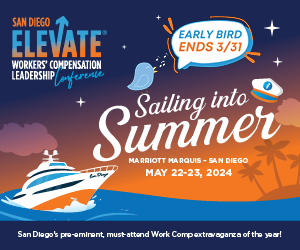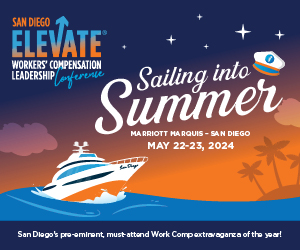Case Law Library
| Case Name: | Irvine Eurocars v. WCAB (Shelly) | 02/11/2011 | |
|---|---|---|---|
| Summary: | Irvine and Redwood contend that the WCJ should have found from the evidence that applicant was employed by Shelly on the date of injury. Irvine denied that applicant was its employee, claiming instead that she was placed on the Irvine payroll only so that she could receive its group health insurance and that she actually was Shelly's employee and never performed any employment duties for Irvine. The WCJ's finding that applicant was employed by Irvine on the date of injury is supported by an earlier Appeals Board panel decision involving similar facts. For the foregoing reasons, IT IS ORDERED that the petition of Irvine Eurocars, doing business as Irvine BMW, and of its workers' reconsideration of the December 1, 2010 Findings and Order of the workers' compensation compensation insurer, Redwood Fire & Casualty Insurance Company, for administrative law judge is DENIED. The record shows that applicant applied for employment as a home assistant/nanny for Shelly and never worked at the Irvine automobile dealership. | ||
| Note: | The state Supreme Court will not review a split panel decision featuring a controversial dispute about whether an auto dealership was a nanny's employer. | ||
| Citation: | ADJ4715696 | ||
| WCC Citation: | WCC 37872011 CA | ||
| Case Name: | Islas vs. D & G Manufacturing Co., Inc. | 07/09/2004 | |
|---|---|---|---|
| Summary: | KEYN HERNANDEZ ISLAS, Plaintiff and Appellant, v. D & G MANUFACTURING COMPANY, INC. , Defendant and Respondent. RELEVANT FACTUAL AND PROCEDURAL BACKGROUND On October 30, 2001, Islas filed a complaint for personal injury against National Sheet Metal Machines, Inc. (National) and respondent D & G Manufacturing Company, Inc. (D & G). The complaint alleges that on October 31, 2000, Islas was employed by D & G, and was operating a power press made by National. D & G submitted deposition testimony from John Gleason, a supervisor for D & G, who denied that the blades were properly classified as a "die. "The trial court nonetheless directed D & G to prepare a written order containing its findings and rulings. | ||
| Note: | Definition of 'power press' is one of fact for trier of fact. | ||
| Citation: | 120 Cal.App.4th 571 | ||
| WCC Citation: | WCC 29972004 CA | ||
| Case Name: | Ito v. WCAB (Fry's Food Stores) | 10/29/1993 | |
|---|---|---|---|
| Summary: | Lori Ito, Petitioner v. Workers' Compensation Appeals Board of the State of California, Fry's Food Stores, et al. , Respondents. COUNSEL: For petitioner--Frank Ury For respondent employer--Nathan Gilbert OPINION BY: Newsom, Acting P. J. OPINION: Lori Ito (applicant) worked as a food clerk for Fry's Food Stores (employer). She loaded it with anything from toilet paper to 50-pound bags of dog food. The other 25 percent of the time she did checking and customer service at the front of the store. The WCJ found that the second trial was not collaterally estopped by the first because the issues were not identical. | ||
| Note: | When doubt exists as to whether injuries are cumulative or separate, file separate applications for each incident. | ||
| Citation: | 58 CCC 744 | ||
| WCC Citation: | WCC 27581993 CA | ||
| Case Name: | Iverson v. California Village Homeowners Assoc. | 03/23/2011 | |
|---|---|---|---|
| Summary: | IVERSEN v. CALIFORNIA VILLAGE HOMEOWNERS ASSOCIATION KURT IVERSEN, Plaintiff and Appellant, v. CALIFORNIA VILLAGE HOMEOWNERS ASSOCIATION, Defendant and Respondent. INTRODUCTION Defendant and respondent California Village Homeowner's Association (California Village) hired plaintiff and appellant Kurt Iversen (Iversen), an independent contractor, to service air conditioner units on the roofs of several of the buildings at its Tarzana, California condominium complex. California Village moved for summary judgment, inter alia, on the ground that Iversen could not rely on Cal-OSHA to support a negligence action because he was an independent contractor and not California Village's employee. In addition, California Village also contended that Iversen could not show that its failure to install safety equipment caused him to fall. Finally, California Village argued that Iversen voluntarily used the ladder knowing of its condition, thereby assuming any risk associated with the ladder. | ||
| Note: | An independent contractor could not rely on Cal-OSHA regulations to establish negligence per se in a premises liability suit, the California 2nd District Court of Appeal ruled. | ||
| Citation: | B220863 | ||
| WCC Citation: | WCC 37352011 CA | ||



